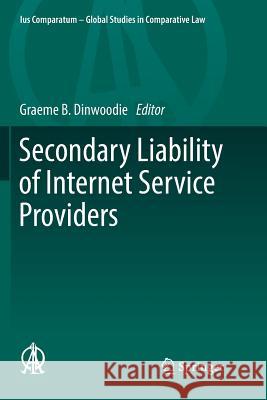Secondary Liability of Internet Service Providers » książka
topmenu
Secondary Liability of Internet Service Providers
ISBN-13: 9783319855486 / Angielski / Miękka / 2018 / 386 str.
Kategorie:
Kategorie BISAC:
Wydawca:
Springer
Seria wydawnicza:
Język:
Angielski
ISBN-13:
9783319855486
Rok wydania:
2018
Wydanie:
Softcover Repri
Ilość stron:
386
Waga:
0.56 kg
Wymiary:
23.39 x 15.6 x 2.08
Oprawa:
Miękka
Wolumenów:
01
Dodatkowe informacje:
Wydanie ilustrowane











